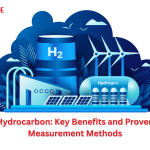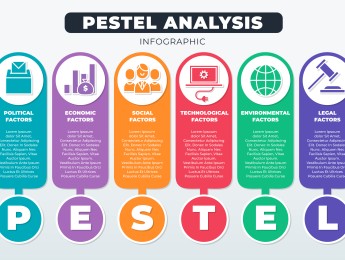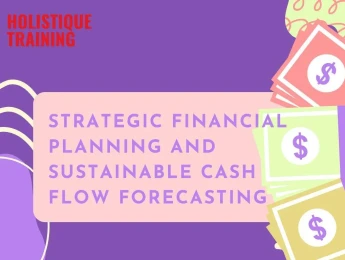Green hydrogen is rapidly gaining recognition as a cornerstone of future sustainable energy systems. As industries, governments, and investors seek decarbonisation pathways, green hydrogen offers a clean, versatile, and scalable energy carrier that can transform sectors ranging from power to transport and heavy industry.
This training programme provides participants with a comprehensive understanding of green hydrogen technologies, from production and infrastructure to storage, transport, and end-use applications. It also explores policy developments, market trends, and emerging innovations shaping the hydrogen economy. Through practical insights and global case studies, participants will be empowered to evaluate and apply green hydrogen strategies within their own organisations and contexts.
By the end of this course, participants will be able to:
- Understand the technical foundations and processes involved in green hydrogen production.
- Identify viable applications of green hydrogen across various economic sectors.
- Examine key storage and distribution technologies and their associated challenges.
- Explore the role of hydrogen in energy transition, carbon reduction, and sustainability strategies.
- Evaluate real-world green hydrogen projects and analyse lessons learned.
- Develop strategic approaches to adopting green hydrogen solutions in industry or policy.
This course is designed for professionals seeking a strong grasp of green hydrogen’s potential and practical implementation, especially:
- Energy and sustainability professionals.
- Engineers and infrastructure planners.
- Policy makers and environmental regulators.
- Utility and transportation sector leaders.
- Technology investors and green business developers.
- Researchers and academics focused on renewable energy and climate policy.
- Corporate strategists and CSR officers looking to integrate green hydrogen into ESG planning.
This course incorporates a mix of expert-led presentations, guided discussions, group exercises, and hands-on activities. Case-based learning and interactive sessions help participants apply complex technical concepts in practical, real-world scenarios. Technical depth is balanced with accessibility for non-specialists.
Day 5 of each course is reserved for a Q&A session, which may occur off-site. For 10-day courses, this also applies to day 10
Section 1: The Role of Green Hydrogen in the Global Energy Shift
- Introduction to hydrogen types: green, blue, grey, and pink
- Why green hydrogen matters: climate goals, energy security, and decarbonisation
- Strategic benefits: environmental, economic, and geopolitical implications
- Key players and global policy initiatives driving hydrogen expansion
- Comparative review of national hydrogen strategies (EU, Japan, Australia, MENA)
Section 2: Green Hydrogen Production Pathways
- Electrolysis explained: using renewable electricity to split water
- Overview of main electrolysis technologies:
- Alkaline Electrolysis
- Proton Exchange Membrane (PEM)
- Solid Oxide Electrolysis (SOE)
- Integration with renewable energy sources: solar, wind, hydro
- Cost, efficiency, and scaling potential of each method
- Innovations in low-cost electrolyser technology and decentralised systems
- Interactive workshop: mapping production system design for a local project
Section 3: Hydrogen Storage, Transport, and Infrastructure
- Key storage methods: compressed gas, liquefied hydrogen, and chemical carriers
- Infrastructure considerations: pipelines, mobile transport, and fuelling networks
- Hydrogen carriers: ammonia, LOHCs, methanol – benefits and trade-offs
- Safety and regulatory standards for storage and transport
- Infrastructure investment trends and international collaboration models
- Hands-on session: infrastructure planning and risk mitigation
Section 4: Cross-Sector Applications of Green Hydrogen
- Hydrogen in mobility: fuel cell vehicles, trains, aviation, and maritime transport
- Power sector integration: hydrogen-to-power systems, backup storage, and grid balancing
- Industrial uses: low-carbon hydrogen in steel, cement, chemicals, and ammonia production
- Hydrogen for buildings: heating, cooling, and combined heat and power (CHP)
- Case studies of hydrogen deployment across sectors and regions
- Group activity: identifying hydrogen potential in participants' industries
Section 5: Market Outlook, Policy Support, and Future Developments
- Market challenges: cost barriers, infrastructure gaps, technology readiness
- Investment dynamics and public-private partnerships
- Government support: subsidies, carbon pricing, and regulatory frameworks
- Innovations to watch: hydrogen blending, Power-to-X, and hydrogen hubs
- Global project pipelines and gigawatt-scale production forecasts
- Strategic planning exercise: building a green hydrogen roadmap for organisational use
Upon successful completion of this training course, delegates will be awarded a Holistique Training Certificate of Completion. For those who attend and complete the online training course, a Holistique Training e-Certificate will be provided.
Holistique Training Certificates are accredited by the British Accreditation Council (BAC) and The CPD Certification Service (CPD), and are certified under ISO 9001, ISO 21001, and ISO 29993 standards.
CPD credits for this course are granted by our Certificates and will be reflected on the Holistique Training Certificate of Completion. In accordance with the standards of The CPD Certification Service, one CPD credit is awarded per hour of course attendance. A maximum of 50 CPD credits can be claimed for any single course we currently offer.
- Course Code IND01 - 152
- Course Format Classroom, Online,
- Duration 5 days








